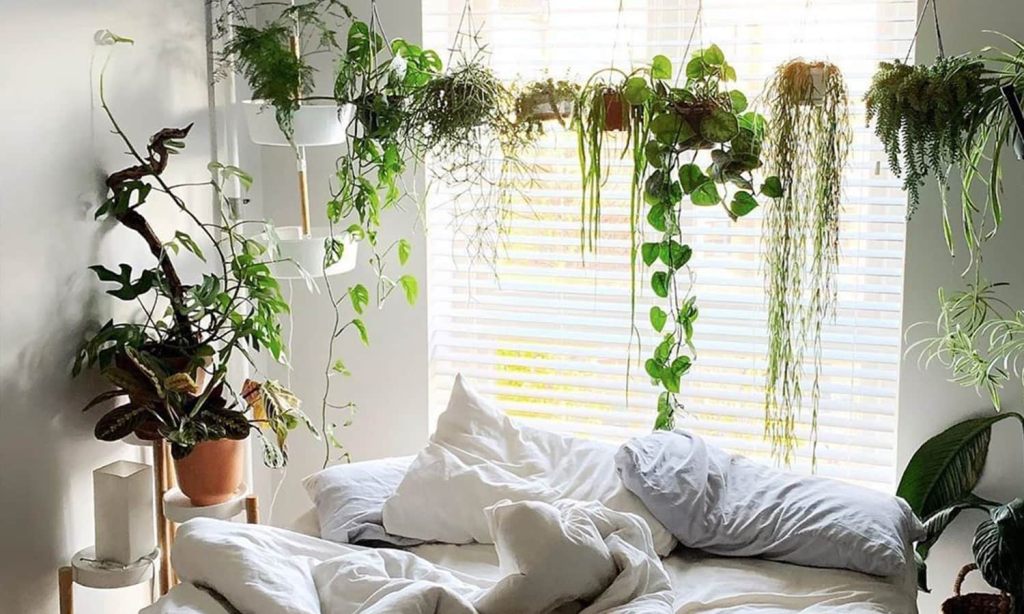Time and time again, indoor plants have been scientifically proven to better your life at home. From improving indoor air quality to quite literally making you happier, there are countless reasons why we should all be filling our homes with greenery — and lots of it.
But with so many of us living in urban areas with either tiny gardens, small balconies or perhaps no outdoor space at all, it’s necessary we get creative with the way we display our plants so as to avoid a The Day of the Triffids-type scenario.
Hanging plants is an effective and aesthetically pleasing way to maximise floor and surface space and draw the eye to higher points in the room, but often require permanent hooks, which essentially rules out renters with hole-intolerant landlords (me).
But with over 40 plants (47 to be precise), my partner and I (Hi, Gil!) have had to find nifty ways to display ours, and while we’ve been proud of our efforts up until this point, nothing has been quite as effective or exciting as our latest discovery: The tension rod.
Tension rods have long been used by renters to erect curtains and fashion temporary storage solutions, but what many don’t know about this affordable apparatus is that it can be used to suspend plants in a myriad of ways.
They use a spring and screw system to create tension between two surfaces, usually two walls or the floor and ceiling. When installed, the rod acts as a permanent rail for hanging items, be it clothes, curtains, or as we’d discovered, plants.
After a bit of digging, we found a tension rod apparatus with poles that go both vertically and horizontally, that with a few hanging pots can help free up our floor space and take our apartment to new heights.
And even with just one devil’s ivy plant coiled around the rod, the solution already looks great (IMO) — particularly in the morning light.
Essentially, there are no rules with how best you can use tension rods at home. It’s honestly best to just shop around at your local hardware store and storage shops, as well as online retailers like Amazon to find the model that will suit your home best.
Just remember to take note of the weight limit the rods can handle before you go hanging up an entire indoor garden to avoid a noisy and messy fall, and be sure to take the extra weight into account after watering your plants.
You’re welcome.
Read more stories from TheLatch— and follow us on Facebook.

